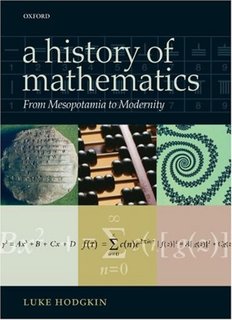A Novel About a Student Who Wins a Mysterious Scholarship With Strange Conditions
What if a scholarship wasn’t just about money for school—but came with conditions so strange they could change your life forever?
In literature, scholarships often symbolize escape, opportunity, or upward mobility. But sometimes, they become doors to secrets, power, or even danger. A novel centered on a student who wins a mysterious scholarship with strange conditions opens up a thrilling literary space that blends realism with elements of mystery, speculative fiction, and psychological drama.
This blog post explores what such a novel might look like—its premise, key themes, narrative style, and how it connects to real-world anxieties around merit, access, and the hidden costs of opportunity. Whether speculative, literary, or psychological in tone, this story would offer readers more than suspense—it would challenge how we think about privilege, dependency, and the ethics of ambition.
1. The Setup: The Unexpected Offer
Imagine the protagonist: a working-class student from a modest background, academically gifted but struggling to make ends meet. They're facing the brutal final year of high school or college applications with little hope—until an email lands in their inbox with the subject line:
“You’ve Been Selected: The Eclipse Fellowship.”
There’s no record of them applying for it. No interview. No application essay. Just a vague yet alluring message: full tuition, board, and a monthly stipend, all expenses covered for a prestigious private university. The only requirement? The student must never speak of the scholarship, attend quarterly “scholarship dinners,” and follow all directives without question.
It sounds like a dream come true. But of course, it isn’t.
2. Themes of Temptation and Unearned Privilege
The narrative begins with the seductive power of opportunity. Like many scholarship recipients in literature, the protagonist feels gratitude—but also guilt. Why them? Why this way? Is there a catch?
This taps into themes of temptation: how we accept help when we’re desperate, how even the most talented individuals question their worth when things come too easily. The protagonist’s internal conflict mirrors real-life anxieties: imposter syndrome, class guilt, and the feeling of being a pawn in someone else’s game.
The scholarship becomes a metaphor for unequal access, especially when other hardworking peers are denied opportunities for transparent, merit-based aid. Why should the protagonist get this mysterious privilege—especially when others are forced to jump through endless hoops?
3. The Conditions Grow Stranger
At first, the rules seem harmless. “Attend the dinners. Don’t discuss the Eclipse Fellowship.” But they get more specific over time:
-
"You must not take certain classes."
-
"You may not speak to students from rival institutions."
-
"You must report any ‘unusual experiences’ to the fellowship office."
When the protagonist tries to find out more—Googling the scholarship, contacting administrators—information disappears. Web pages 404. Staff members refuse to answer. The scholarship office, located in a shadowy corner of the administration building, seems to move rooms every few weeks.
Another strange detail: the other fellowship recipients avoid eye contact. Some drop out quietly. One disappears.
4. The Genre Twist: Mystery Meets Dystopia
This setup lends itself well to genres like speculative fiction, mystery, dark academia, or psychological thriller. The strange scholarship can evolve into a larger conspiracy—perhaps the university is a front for secret research. Or maybe the benefactor is an anonymous tech mogul gathering experimental data. Maybe the protagonist is being conditioned for something more sinister—leadership in a secret society, or sacrifice in some ritualistic hierarchy.
At its heart, the story becomes a battle of agency vs. dependence. How much can one student bend before breaking? What does it cost to keep your scholarship, and what does it mean to resist?
In dystopian terms, the fellowship could symbolize a closed system of social control, where gifted students are plucked from poverty not for education, but to serve an elite class. The novel could critique capitalism, surveillance culture, or educational inequality—all while maintaining a fast-paced, suspenseful plot.
5. Emotional Core: Isolation and Identity
At its emotional core, this story explores the loneliness of being chosen.
The protagonist begins to lose friends. They can’t explain where their money comes from or why they’re acting differently. Their parents, proud and confused, don’t understand what’s happening. They can’t confide in teachers, and they begin to wonder: Was I really chosen for who I am—or am I just a piece of someone else's puzzle?
Themes of isolation, identity, and betrayal emerge. The protagonist may begin to journal their experiences, suspect that their room is bugged, or start following other fellows to uncover the truth. As paranoia grows, so does the reader’s suspicion: is this psychological breakdown or justified suspicion?
6. The Turning Point: Breaking the Rules
Inevitably, the protagonist breaks a rule.
They skip a dinner. They try to speak openly about the fellowship at a student forum. They sneak into a restricted floor of the administrative building. And that’s when the fallout begins.
Perhaps they’re warned with a veiled threat: “Some students aren't ready to lead.” Or worse, one of their closest friends is implicated or harmed. The protagonist realizes that the scholarship is a means of control, not opportunity. But now, they are too deep to walk away without consequences.
This turning point challenges readers to question their own values: Would you give up your dream school if it meant reclaiming your freedom? Would you risk your family’s hopes, your future, for the truth?
7. Conclusion: Reclaiming Power
The climax may see the protagonist escaping the grip of the fellowship—exposing its secrets, finding allies among the other students, or making the ultimate sacrifice: walking away.
Or, in a darker twist, they may succumb, justifying the strange conditions in the name of opportunity. Maybe they rise in the ranks, promising to change the system from within—even if it means repeating the cycle of control with future students.
Whatever the ending, the novel serves as a sharp allegory about the hidden costs of elite education, the seductive power of patronage, and the moral gray zones that exist between acceptance and resistance.
Why This Novel Matters Today
In today’s world, where access to higher education remains unequal, and where scholarships often come with layers of bureaucracy and subtle expectations, a novel like this hits home. It would appeal to readers of:
-
Dark academia like The Secret History by Donna Tartt
-
Speculative thrillers like Never Let Me Go by Kazuo Ishiguro
-
Young adult dystopia like Legend by Marie Lu or The Hunger Games
-
Campus novels with a twist, like Bunny by Mona Awad or The Likeness by Tana French
This story wouldn’t just entertain—it would challenge readers to reflect on how opportunity is structured, what it means to be “deserving,” and how systems of power disguise themselves as gifts.
Final Thoughts: Would You Accept the Offer?
The question at the center of this novel is timeless: What would you do if everything you ever wanted came with a price you couldn’t see?
Scholarships are supposed to be about reward and recognition. But when they’re cloaked in secrecy and strange conditions, they become something more: a test of character, a mirror of ambition, and sometimes, a trap.
This novel invites us to reconsider the hidden machinery behind success—and the quiet strength it takes to say no.







